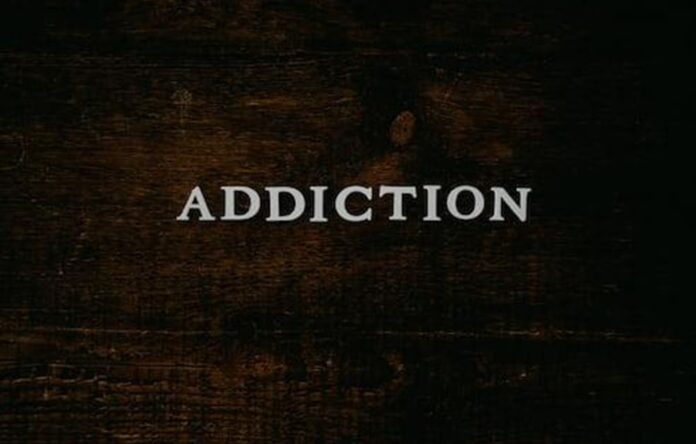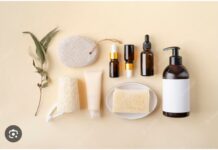Drug addiction is a chronic and complex disorder that affects your brain, body, and behavior. It can cause serious health, social, and legal problems, as well as emotional distress and suffering. Drug addiction is not hopeless. You can recover from it with the right treatment and support.
Treatment for drug addiction is not a quick fix or a one-time event. It is a long-term process that involves multiple steps and components. Each person’s treatment plan is different and depends on their specific needs, preferences, and goals.
Here are some of the main components of drug addiction treatment and how they can help you recover and rebuild your life.
Detoxification: The First Step to Recovery
Detoxification is the process of clearing your body of drugs and managing withdrawal symptoms when you stop taking them. Withdrawal symptoms can be uncomfortable and sometimes dangerous, depending on the type and amount of drugs you used. They also depend on how long you used them, and your overall health.
Detoxification can be done in different settings, such as:
• Inpatient: You stay in a hospital or specialized facility where you receive 24/7 medical care and supervision.
• Outpatient: You visit a clinic or doctor’s office regularly for medication and counseling.
• Home-based: You detox at home with medication and support from family or friends.
Detoxification is not enough to treat drug addiction. It is only the first step to prepare you for further treatment and rehabilitation.
Counseling and Behavioral Therapies: The Core of Recovery
Counseling and behavioral therapies are the main methods of treating drug addiction. They help you understand why you use drugs, how they affect you, and how you can change the thoughts, feelings, and actions that lead to drug use. They also let you develop coping skills to deal with stress, triggers, cravings, and prevent relapse. Lancaster treatment center also help you improve your functioning in various areas of life, such as work, school, family, and social relationships.
Therapy can be done individually or in a group setting. It can be delivered by trained professionals such as psychologists, social workers, counselors, or therapists. There are different types of therapy for drug addiction treatment, such as:
• Cognitive-behavioral therapy (CBT): This therapy helps you identify and challenge your negative thoughts and beliefs about drugs and yourself, and replace them with more realistic and positive ones. It also teaches you how to cope with difficult emotions, situations, and cravings without drugs.
• Contingency management (CM): This therapy uses incentives such as vouchers or prizes to reward you for staying abstinence from drugs or achieving other treatment goals. It motivates you to change your behavior and maintain your recovery.
• Motivational interviewing (MI): This therapy helps you explore your ambivalence about quitting drugs and enhances your motivation to change. It uses a non-judgmental and supportive approach that respects your autonomy and readiness to change.
• Family therapy: This treatment includes teen therapy and involves your family members or significant others in your treatment process. It helps improve communication, resolve conflicts, strengthen bonds, and supports recovery within the family system.
• 12-step facilitation: This therapy introduces you to 12-step programs such as Alcoholics Anonymous (AA) or Narcotics Anonymous (NA). It helps you connect with a peer support network that offers guidance, encouragement, and accountability for recovery.
Rehabilitation Programs: The Bridge to Reintegration
Rehabilitation programs are structured and intensive programs that provide a supportive and therapeutic environment for people with drug addiction to recover and reintegrate into society. They usually last from a few weeks to several months, depending on your needs and progress.
There are different types of rehabilitation programs that use different approaches and settings, such as:
• Inpatient/residential facilities: You stay in a hospital or a specialized facility where you receive 24/7 medical care and supervision. You receive individual and group therapy, medication, education, and other services tailored to your needs. You are also isolated from outside influences and temptations that trigger drug use.
• Outpatient facilities: You visit a clinic or doctor’s office regularly for medication and counseling. You can continue to live at home and attend work or school while receiving treatment. You have more freedom and flexibility, but also more responsibility and accountability for your recovery.
• Sober living or recovery housing: You live in a safe and drug-free environment with other people recovering from drug addiction. You follow certain rules and expectations, such as attending meetings, doing chores, paying rent, and staying abstinent from drugs. You also receive support and guidance from peers and staff members.
• Therapeutic community: You live in a highly structured program where the community is used as the primary vehicle to foster behavioral and attitudinal change. You receive information and the impetus to change from being a part of the community. Role modeling and peer pressure play significant roles in the program. Therapeutic communities aim to change your self-destructive thinking and behavioral patterns, teach you personal responsibility, positivize your self-image, create a sense of human community, and provide an environment in which you can grow and take responsibility and credit for your growth.
Self-Help Groups: The Source of Support
Self-help groups are voluntary associations of people who share a common problem or experience related to drug addiction. They offer mutual support, encouragement, and guidance in recovery. They also provide a sense of belonging, identity, and purpose for you.Self-help groups include:
Self-help groups can be used as a complement to professional treatment or as a standalone option for some people. However, for individuals struggling with alcohol addiction and its impact on marriage, self-help groups focused on addiction recovery can provide valuable support and guidance. These groups often emphasize the negative effects of alcohol on relationships, including marriage, and offer strategies for overcoming these challenges. Joining such a group may help individuals gain insight into the destructive patterns caused by alcohol and learn effective ways to rebuild trust and strengthen their marriage. It is important to note that addressing alcohol addiction within a marriage often requires professional help and therapy alongside participation in self-help groups.
Medications: The Tool for Recovery
Medications can play a significant role in drug addiction treatment and rehabilitation. They can reduce withdrawal symptoms, cravings, relapse risk, overdose risk, and co-occurring mental health issues. They can also improve your physical health, mood, cognition, and functioning.
There are different types of medications for different types of drug addiction, such as:
• Opioid use disorder: Medications such as methadone, buprenorphine, naltrexone, or naloxone can help prevent or reverse the effects of opioids such as heroin or fentanyl. They can reduce withdrawal symptoms, relapse risk, overdose risk, and co-occurring mental health issues. They can also improve your physical health, mood, cognition, and functioning.
• Alcohol use disorder: Medications such as acamprosate, disulfiram, and naltrexone can reduce alcohol consumption, prevent relapse, and treat co-occurring mental health issues. They work by reducing alcohol’s rewarding effects, causing unpleasant reactions if alcohol is consumed, or modulating the brain’s stress response to alcohol cues.
• Nicotine use disorder: Medications such as nicotine replacement therapy (NRT), bupropion, and varenicline can help people quit smoking or consuming other tobacco products. They reduce withdrawal symptoms, cravings, and nicotine rewards. They can be used alone or in combination with behavioral therapies.
Medications for drug addiction are not cures for the disorder. However, they are most effective when used in conjunction with a treatment program that includes counseling and behavioral therapies. They are also not a one-size-fits-all solution but clinically driven and tailored to meet each person’s needs and preferences.
Conclusion
Drug addiction is a treatable disorder that can be overcome with professional treatment and rehabilitation programs. These programs can provide a comprehensive and individualized approach that addresses physical, psychological, social, and spiritual aspects of recovery.
Write and Win: Participate in Creative writing Contest & International Essay Contest and win fabulous prizes.











